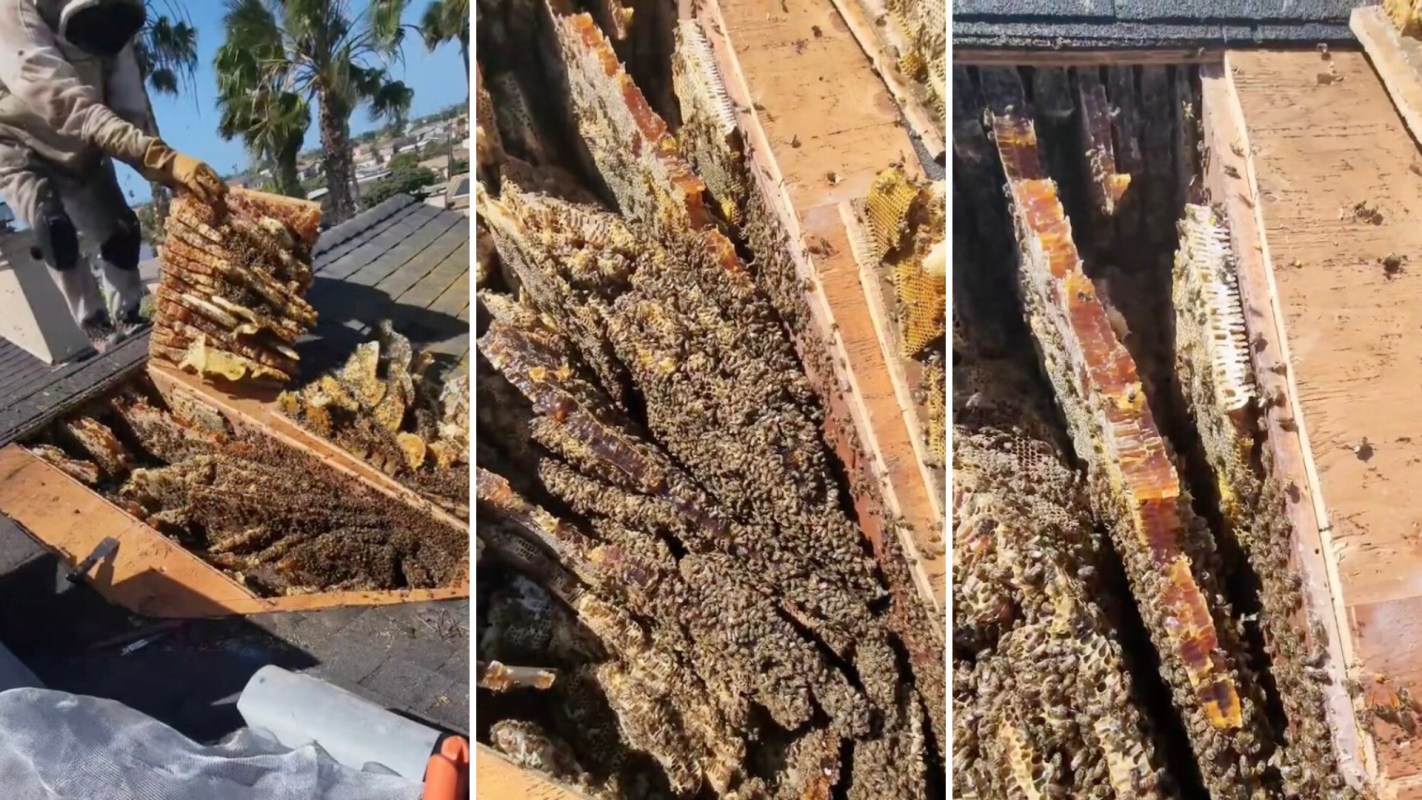An incredible rescue operation to save thousands of bees has gone viral on TikTok, picking up 1.9 million likes and 19.3 million views as of late December.
Posted by professional bee rescuers, known on the platform as mr.mrs.beerescue (@mr.mrs.beerescue), the footage shows expert Jeff peeling back the sections of a roof in San Diego to uncover vast numbers of the winged insects and huge quantities of honeycomb.
The caption noted the whole process of removing the bees took 12 hours, with 140 pounds of honeycomb recovered.
Jeff also had to deal with winds gusting at 40 miles per hour while standing on the top of the roof, which was three stories high.
@mr.mrs.beerescue THE BEE RESCUE FROM HELL 😭 This took 12 long and excruciating hours! There was 140lbs of honeycomb, 3 stories high with 40 mph gusts of wind 😵 #beetok #bees #roofer #roofing #construction #animals #nature #bugs #weareprofessionals ♬ original sound - mr.mrs.beerescue
Commenters were amazed by the sheer size of the bee population and by Jeff's efforts to locate the queen and remove the bees safely.
"This house [was] single-handedly saving the bees," one user said.
"That's so wild, just living in their own universe in someone's house," another said. "Thank you Mr. Bee for taking care of them!"
Jeff has 19 years of experience rescuing bees, according to his TikTok profile, so it's definitely not wise to attempt a rescue yourself.
Though they can cause problems if they nest in your home, bees should be removed humanely because they are so important to the planet.
According to the United Nations Environment Programme, they are among the world's greatest pollinators. Citing data from the 2019 Intergovernmental Science-Policy Platform on Biodiversity and Ecosystem Services, UNEP said there are 80 million hives worldwide that produce 1.6 million tonnes (nearly 1.8 million tons) of honey per year.
Meanwhile, bees also produce royal jelly and pollen, which are important in the food supply; propolis, which has medicative properties; and beeswax, which can be used in candles and cosmetic products, among a range of other functions.
However, bees are under threat because of human-caused global heating, farming pesticides, and loss of habitat.
Protecting them is key to the health of our ecosystem. That's why planting native flowers in gardens is so important to attract bees and allow them to thrive.
And if you need to kill other invasive bugs in your green space, look for natural alternatives to pesticides to avoid the chemicals that can cause so much harm to the vital pollinators.
Bee bars and bee hotels are also great additions to a garden that can encourage the safety of the buzzing minibeasts and help them thrive for a long time to come.
Join our free newsletter for cool news and cool tips that make it easy to help yourself while helping the planet.









